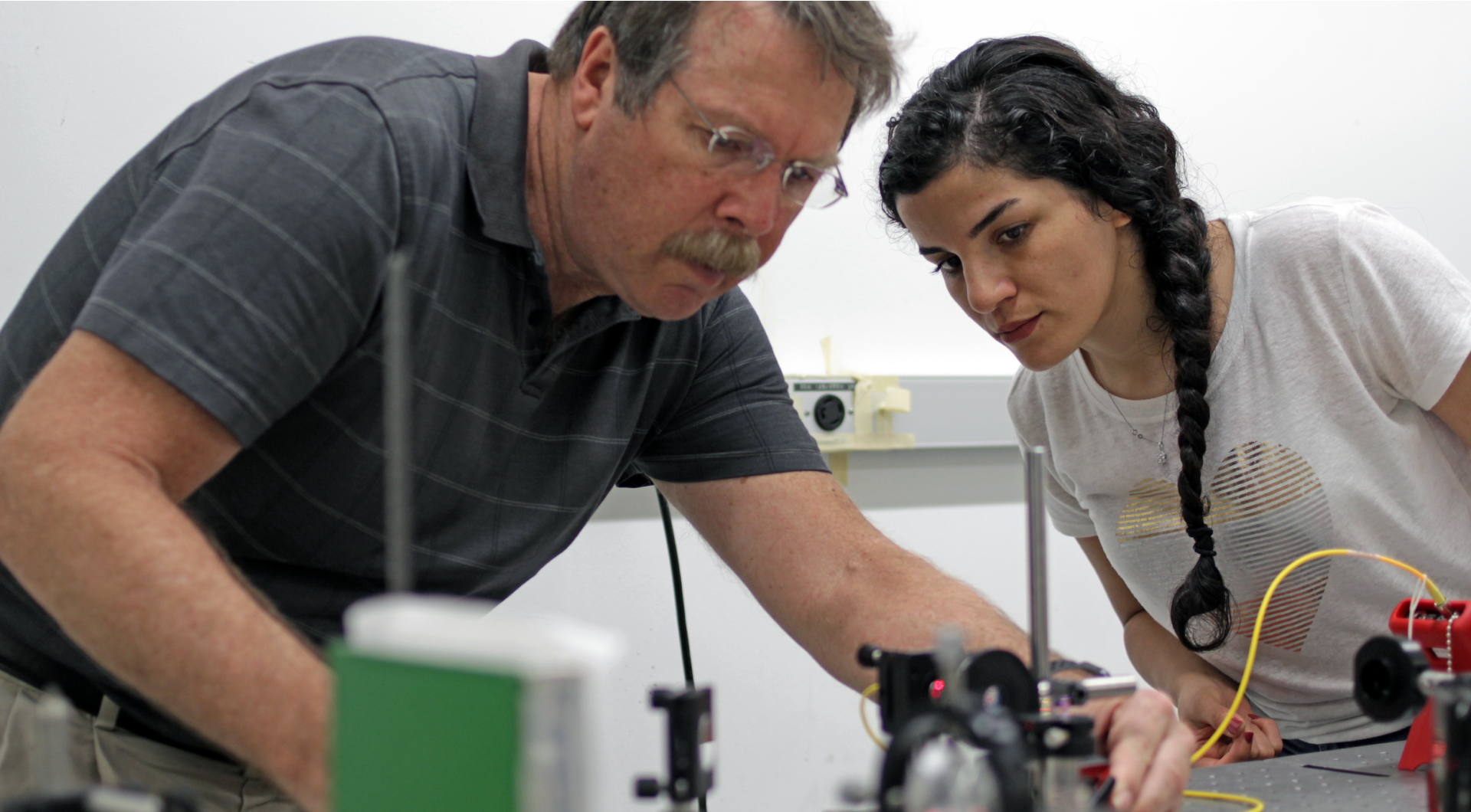Enhancing Computer Supremacy for National Security
Building the first full-scale quantum computers would be a revolutionary technology with problem-solving capabilities – both good and bad.
The quantum computer innovation performs calculations far more efficiently, allowing for improvements in machine learning, leading to medical breakthroughs and other advances, said Warner Miller, Ph.D., professor of physics and associate dean for research in the Charles E. Schmidt College of Science. But, the risk is that such advanced technology, also known as quantum supremacy that will far surpass today’s supercomputers, could also be used to crack encryption codes – quickly threatening financial institutions, the electric grid and national security.
“Quantum computing is evolving rapidly, and it could quickly accelerate in development and trust in our data security could erode very quickly,” said Miller, adding that even our institutions could become more vulnerable if quantum computers exist.
Miller is an advisory board member of the Quantum Alliance Initiative organized by the Hudson Institute, a Washington, D.C.-based think tank. The initiative brings together U.S. government, academic and industry partners to help guide and support the nation and its allies’ global leadership in quantum research and development.
The importance of this area is underscored by the U.S. House of Representatives recent passage of a $1.275 billion National Quantum Initiative Act.
“The United States is still leading in the field of quantum computing, but we should have a clear focus for national needs in this area,” Miller said.
The U.S. Department of State appointed FAU to represent the U.S. at the International Telecommunications Union, the United Nations specialized agency for information and communications technologies. As academic members of the organization, Miller and his colleagues develop international standards for two crucial technologies that could combat quantum-resistant cryptography. The two technologies include quantum random number generators, preventing external secret hacking by rapidly generating random strings of digits, and quantum key distribution, a novel way to securely communicate using a fundamental law of nature that a quantum state can’t be cloned, which would stop hackers from intercepting and copying data.
“What’s exciting is that FAU is participating in this first-ever development of international standards in the quantum area,” Miller said.
FAU is also creating an important new quantum information science collaboration with Harris Corporation in Palm Bay, Fla., while continuing partnerships with SK Telecom, the largest telecommunications company in Korea, and IDQuantique, a Swiss company focused on quantum-safe cryptography, and the Air Force Research Laboratory Information Directorate. Miller’s work is funded by grants from the Air Force Research Laboratory and from the Air Force Office of Scientific Research.
“We’ve shown that at FAU we can address some very clear needs in quantum computing, and we have the resources to help others,” Miller said.
If you would like more information, please contact us at dorcommunications@fau.edu.
